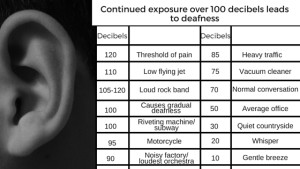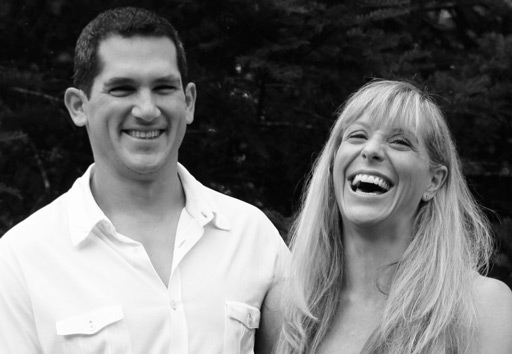I recently had an amazing experience. I went to a meeting where I experienced and was educated on sound therapy. The benefits of sound healing have been around for as long as humans have had ears. Personally, I’ve experienced both the negative and positive effects of sound. I’ll touch on both in this article.
Bob Marley captured the power of sound when he sang, “One good thing about music, when it hits you, you feel no pain.”
Sound healing is powerful for many reasons.
Some cultures and traditions have utilized it and acknowledged it more than others. Still, I believe we will be seeing (or hearing) a lot more about this from the scientific community in the years to come.
If you think about it before we could see, taste, smell, and perhaps, feel, we could hear. While inside the womb, the fetus hears the sounds of its mother’s body, from heartbeat to digestive noises. Father’s voices have been recognized by newborns due to hearing them before birth.
Some parents play music, count or talk to their unborn child. I admit it, I did.

As far as sound’s adverse effects, I know first hand the psychological wear and tear that living and working near a major construction site had on me. The constant jackhammers, the beeping of reversing dump trucks, airhorns, metal clanging, and frustrated drivers honking, left me impatient, cynical and with a higher baseline of stress.
I didn’t realize how on edge I was until I got some distance from the noise. Noise pollution is real and damaging in mind, body and spirit. The W.H.O. (World Health Organization) has recognized there is, beyond the obvious hearing impairment, a laundry list of health issues attributed to noise, especially in children.
On the flip side of the coin, sound healing has been shown to offer amazing benefits in a wide variety of cases.
Dr. Mitchell L. Gaynor, an oncologist, has used music, vocalization, breathing, and meditation to dramatically shift the perspectives of his patients. He has reported:
- Reduced stress and pain
- Strengthened immune system
- Release of grief, anxiety and depression
- Elevated confidence, joy, and sense of purpose
- More harmonious relationships
Sound healing is representative of the multidisciplinary convergence of physics, psychology, neuroscience, biology, music and spirituality.
Sound affects our nervous system. Every cell in the body has a vibrational frequency to it. Some sounds energize our brain while others relax us. Dr. Alfred Tomatis studied the power of sound healing, psychoacoustics, and declared sound as a “nutrient for the nervous system“.
While some sounds, music and even lyrics can make people feel unwell, they can actually affect behavior in negative ways as well. Ask John Phillips of The Mama’s and the Papas or Mick Jagger of The Rolling Stones how certain rhythms and lyrics have altered their audiences on numerous occasions.
To take command of this powerful medium, let’s look at…
10 Ways to Utilize Sound Healing
- Listen to the Music Play – Music has the power to change our moods and elevate our spirits. We can choose the right type of music to achieve the desired effect. If you want to be more happy pick music that touches you or is associated with a happy moment in your life.If you get confused just listen to the music play ~Jerry Garcia Click To Tweet The trail of the melody will take you to better places.
- Choose Your Lyrics Wisely – Instrumental sounds are one thing but lyrics are also movers of the mind, body and spirit. I’m sure you can recollect listening or singing along to lyrics that drove your state of mind up, down, to anger or to passion. Be wary of lyrics that lead you to dark places when you are not feeling secure going there. Words are far more powerful embedded in rhythm and wrapped in notes. Click To Tweet Think about spells, prayer, and chants.
- Enjoy Happy Humming – Easier than singing, humming is something that is free and portable offering sound healing anywhere you go. It can be used to reduce stress, calm the body and has even been studied as a way to regulate blood pressure. In the words of Pythagoras: There is geometry in the humming of the strings, there is music in the spacing of the spheres Click To Tweet
- Sing Freely – There’s a reason singing in the shower feels so good. Yes, being in a shower feels good but singing allows your spirit be vocalized in the physical world around you. Don’t get hung up on how good a singer you are. Enjoy it without caring. My daughter did not start with a good voice but she loved singing. She didn’t stop and now she has a really good voice. More importantly, she is so happy when she sings.Won't you help to sing, these songs of freedom? 'Cause all I ever had, Redemption songs - Bob Marley Click To Tweet
- Laugh From Within – Laughter is some of the best medicine, whether it’s your own or someone else’s. If you question this, be around kids who are laughing deeply. I dare you not to smile or feel that warmth starts rising within. Check out laughing yoga if you can’t find any laughing kids.Laughter is inner jogging - Norman Cousins Click To Tweet
- Use Rhythmic Breathing – There is a connection from brain waves to heartbeat to respiratory rate. When we calm our breath, easier than calming our brain or heart, we affect the tempo of the other organs. Breathwork has been used by monks, athletes, musicians, martial artists and so much more to achieve greater control of performance, mood and emotions. Try breathing deeply in for 4 seconds, a 4-second hold and a 4-second exhalation. Repeat and continue for 4 minutes. See what happens. It is desirable that people make music on the breath, with the breath - Dietrich Fischer-Dieskau Click To Tweet
- Listen to Nature – Most people would agree that the onset of Spring is a great time of year. It brings joy, feeling of renewal and hope to mind. What sound accompanies this? Birds chirping come to my mind. Beyond that, sounds like ocean waves crashing, babbling brooks, the wind in the trees, and rain drops pit-pattering on a lake generally make people feel good or at ease. “The earth has music for those who listen.” ― George Santayana Click To Tweet
- Avoid Noise Pollution – As I mentioned above in my personal experience with construction, loud and disturbing noises can do more harm than just cause hearing impairment. I survived by going out and getting this pair of industrial safety ear muffs for noise reduction. It kept me sane long enough to get away from the construction. You could just use ear plugs if it’s not too loud but the best solution would be to get away from the noise entirely.

- Play with Instruments – From guitars and flutes to pianos and drums as well as Tibetan bowls or quartz “singing” bowls, instruments and sound healing tools can be therapeutic to play and listen to. Music instruments and sound appreciation date back to ancient civilizations. All civilizations, even the most remote, have some form of it and it has likely existed further back than 55,000 years. If you've got a problem, take it out on a drum. - Neil Peart Click To Tweet
- Have a Session with Sound as Therapy – Whether it be the quietness of a float tank, a session with quartz crystal bowls used by an experienced sound healer, partaking in a ritual chant, or simply intentionally creating an environment to experience music that transports you from the mundane to the profound, give sound a chance to move you. When I hear music, I fear no danger. I am invulnerable. I see no foe. ~Henry David Thoreau Click To Tweet … “I am related to the earliest times, and to the latest.”
 There’s a reason people “feel the music”.
There’s a reason people “feel the music”.
Sound is not just for the ears. There are rhythms all through nature, inside and outside our own selves.
These vibrations offer clues as to where we came from and what resides at our core. We evolved to communicate with defined words but no matter how eloquent language is, sound is both more primal and more transcendent.
How has sound affected you?
Further Readings on Sound Healing:
The Ear and Voice by Alfred A. Tomatis, M.D.
The 7 Secrets of Sound Healing by Jonathan Goldman
The Healing Power Of Sound: Recovery from Life-Threatening Illness Using, Sound, Voice and Music by Mitchell Gaynor, M.D.
The Brain That Changes Itself: Stories of Personal Triumph from the Frontiers of Brain Science by Norman Doidge, M.D.
The Secret Power of Music by David Tame
